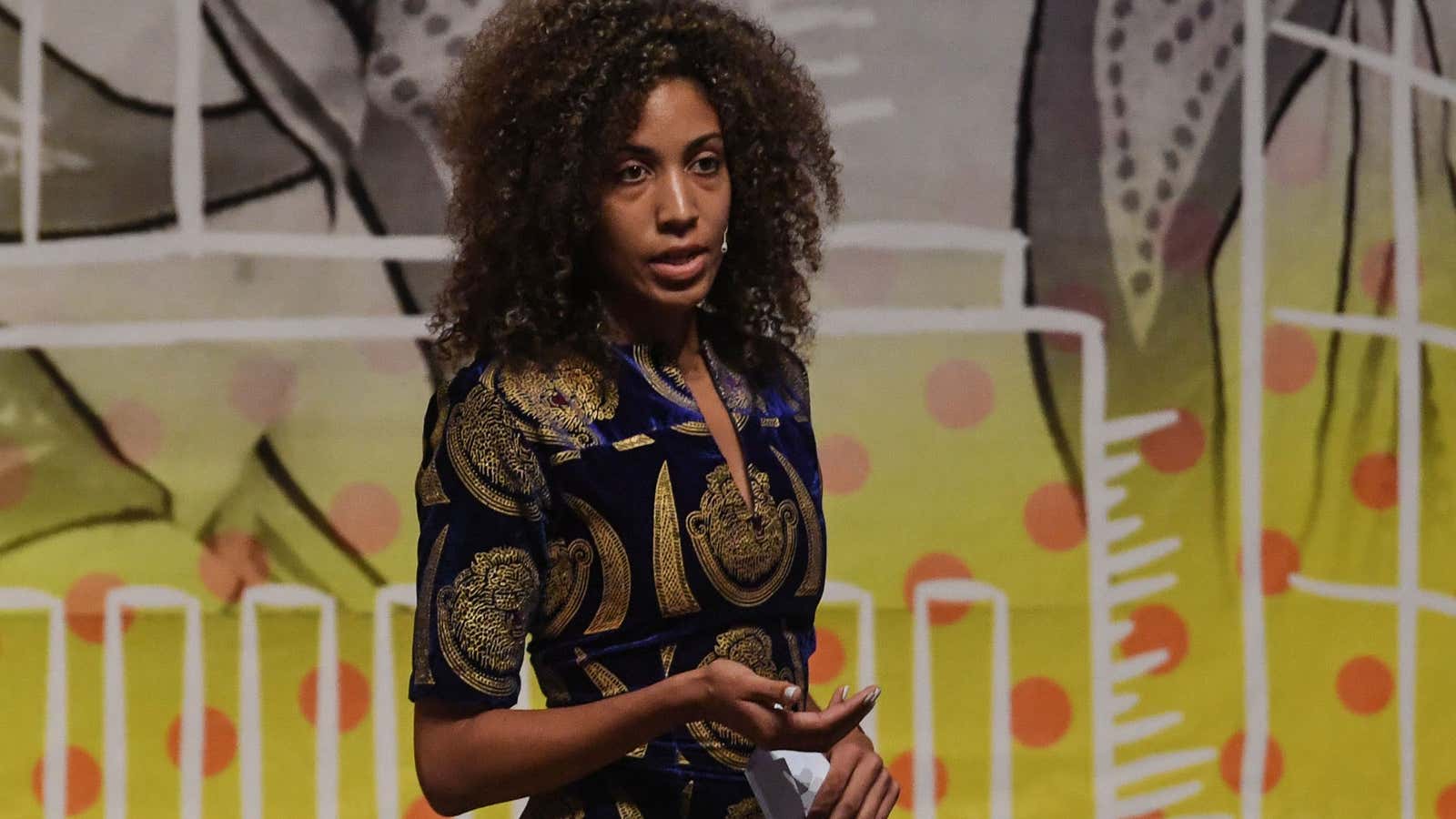This past week, Ingressive Capital, a $10 million venture capital fund started by Maya Horgan Famodu with its headquarters in Nigeria, celebrated five years since it was started. Horgan Famodu launched Ingressive at age 25; today, the fund is focused on leveling the playing field for female entrepreneurs: About 40% of its portfolio companies are founded or co-founded by women.
The fund that invests in tech-enabled businesses in Africa has a lot to celebrate. On average, the company provides between $200,000 and $400,000 in equity funding, and often targets 10% ownership in its startups. Its highlight reel includes Paystack, the payments processor that was acquired by Stripe for more than $200 million in 2020, and 54gene, a company that collects African genetic code for drug development and health research.
In 2020, Ingressive doubled its fund to $10 million, with backers that include Nigeria’s sovereign wealth fund (pdf), Michael Seibel of Y Combinator, Techstars, and others.
Local funders are backing startups early
As African startups took off over the past decade, local entrepreneurs were able to innovate their way past problems facing the continent, often more quickly than legacy companies. That innovation requires a significant amount of capital. So western venture capitalists—buoyed by low interest rates and fear of missing out on the next big thing—bought in at a frenetic pace, alongside investors from Asia and the Middle East.
But one key player is still largely missing: The local investment scene in Africa is not as mature as the tech industry itself, and the gap leaves startups with global ambitions to look abroad for funding.
While that dynamic may not seem like much a limitation—after all, four African startups hit valuations of more than $1 billion last year, and a half-dozen raised more than $100 million—local investors are crucial for startups that are not yet making headlines. Before the eye-popping later fundraising rounds, it’s local investors who typically make bold bets on entrepreneurs with checks of $25,000 to $50,000.
Sometimes, local funds back those who would otherwise be left behind: FirstCheck Africa, launched last January, funds companies (“ridiculously early”) that are founded or co-founded by women. Just 3% of VC funds to African companies currently goes to female-founded startups.
A few local investors are focusing on female-led startups
If local funding for early-stage startups in Africa is still in its early days, it is in infancy for female-led startups. A few funds are trying to change the status quo though. This includes South Africa’s $100 million private equity fund, Alitheia IDF fund, which focuses on small to medium businesses with high-growth potential, investing in women-centered companies across Nigeria, South Africa, Ghana, Zambia, Zimbabwe, and Lesotho. It invests in businesses that “engage a significant percentage of women, either as entrepreneurs, producers, distributors or consumers.”
Another big player is FirstCheck Africa, launched in 2020, which backs early-stage companies founded or co-founded by women with a $25,000 check. In Francophone west Africa, there is Janngo Capital, founded in 2020 by Senegalese entrepreneur Fatoumata Ba, committing 50% of the €60 million ($82 million) it had raised to startups founded, co-founded, or benefiting women.
Future Africa, a co-investment VC firm founded by Nigerian serial entrepreneur Iyin Aboyeji, announced in 2021 that it would invest up to $1 million in women-led startups.
Western financiers with piles of cash are typically unwilling to back African startups in those early stages, when the future—and the potential to scale—remain uncertain. But for entrepreneurs, those early checks make a huge difference, giving earliest-stage startups room to breathe as they navigate perhaps the most difficult period of any company’s life. In other words: Getting a leg-up from a local funder could be the difference between packing up shop or growing big enough to attract the kind of funding that makes headlines.
